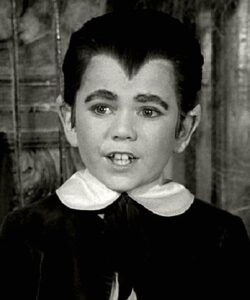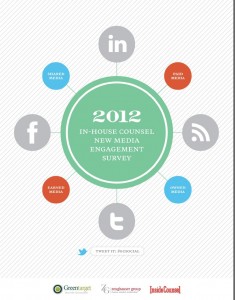 If you haven’t already seen it, seeing-is-believing. Check this out. Mark O’Mara, defense attorney to George Zimmerman—stand your ground case in Florida—has created a Facebook Page. Further, he has taken over the reins of all official social media interaction for his client, shutting down Zimmerman’s personal accounts and ratting out imposters. Does this raise your eyebrows? Mine are approaching my widow’s peak.
If you haven’t already seen it, seeing-is-believing. Check this out. Mark O’Mara, defense attorney to George Zimmerman—stand your ground case in Florida—has created a Facebook Page. Further, he has taken over the reins of all official social media interaction for his client, shutting down Zimmerman’s personal accounts and ratting out imposters. Does this raise your eyebrows? Mine are approaching my widow’s peak.
Is Social Media a Modern Channel for Defending a Witch Hunt?
There are many interesting questions, the least of which may be what happens when the trial court attempts to pick a jury? Skipping over that small detail for now… Other questions I had in mind include:
Is the George Zimmerman Facebook page, blog, and Twitter stream a signal of things to come? Is O’Mara a social media lawyer trailblazer? Is a social media channel(s) that gives voice to the public opinion in a high profile case just a practical solution for the defense counsel to manage the megaphone efficiently, or is there some bigger motive, i.e., a tactic engineered by a cunning defense attorney (intended to blow up in the face of the court)? Maybe the social media sites were created to drive donations to the Zimmerman legal defense fund, i.e., O’Mara’s pocket? (In two weeks, they raised $200,000 online.) Is this a Pandora’s box or what, to say the least?
(Disclaimer: My perspectives and opinions may be obtusely influenced in proportion to the number of Law and Order episodes consumed over the last 15 years or so…)
I was quoted in a Miami Herald article that digs deeper into social media tactics, particularly the allegedly damming history extracted from Zimmerman’s MySpace Page. Comments on George Zimmerman’s Facebook Page claim that the MySpace page was allegedly hacked. While I can’t comment on that directly, it is possible. Hackers will do anything for a pizza.
I also neglected to mention that prior to Zimmerman hiring O’Mara, he was M.I.A. and thus not defending his character or his actions in the media. It’s interesting that defense counsel has “ramped” that up, particularly using social media channels. I also learned from an unnamed reporter who spoke with O’Mara that the burden of managing this Facebook Page (i.e., moderating comments) has exceeded his expectations, and he has hired several people to assist him. I am not surprised, but it certainly raises more questions: are they attorneys? Are they now registered counsel to the defendant? If they are not, is O’Mara violating the ABA and Florida Bar Rules on Trial Publicity (see way below)?
I’m going to guess that from what I’ve seen over the past 24 hours; the Facebook tactic is NOT going to become de rigueur for defense attorneys. Are they crazy! Who would want this noose around their neck? O’Mara is likely second-guessing his own moves…at least if he’s as smart as he should be.
So, the question remains: will (can) the judge put a gag order on social media?
On Tuesday, Seminole County Circuit Judge Kenneth R. Lester denied the prosecution’s request for a gag order.
From CNN:
“At this time, there is no demonstrated need to restrict free speech,” Seminole County Circuit Judge Kenneth R. Lester wrote.
The decision — which was made public Tuesday — rejects, among other things, prosecutor concerns over a lack of juror impartiality due to the amount of media coverage surrounding the high-profile case.
Of course, the request and the facts were filed BEFORE the whole Facebook, bruhaha. Is it back to the drawing board? With this HUGE social media factor being injected into the trial publicity, can the judge change his mind? I would gander a bet that he is right now holed up in his office trying to make sense of it all. Maybe he doesn’t understand the social media paradigm and the impact it has on public opinion. Maybe, hopefully, he has a social media consultant at his side to help him try to understand it and use it ethically. Let’s hope so.
Personally, I’d rather see this case tried in the courtroom, but it is too late. Both sides will be subject to bad fallout as it is now in the court of public opinion. Yet, where social media is concerned, I think there are some serious holes in the defense tactic. The Judge should crack down on it—on both sides—before it gets out of hand—or maybe it has already.
Let’s Examine the more common uses of social media for lawyers and their law firms.
In general, lawyers and law firms (of all practices: corporate defense, plaintiff personal injury, class action, criminal defense, etc.) use the internet and social media primarily for four reasons:
- To advertise
- To educate
- To network
- To recruit employees
They pay to advertise their services on search engines, directories, networking sites, and blogs. They educate the public about their services and legal issues on their firm website, social networking sites, directory sites, and blogs. They use social networking sites to develop new business leads by posting a profile and interacting with the public and/or using social media channels, such as LinkedIn and Facebook, for recruiting associates and employees.
I know firsthand, via my social media counseling practice and from speaking to lawyers around the world, that not all lawyers are endeared by social media. In fact, many lawyers are still dragging their feet for various reasons, the least of which are privacy issues and time limitations. But just as many have resigned to the fact that it exists and take the attitude of “if you can’t beat ‘em, join ‘em.” Others find it unprofessional, unethical, unproven, period. They are the never-social media crowd. Yes…that exists.
These fairly common (tame) activities are acknowledged by the American Bar Association, which is currently in the process of codifying an updated version of the Model Rules and Codes of Professional Conduct to include guidance on social media activities (due in August 2012)—update on ABA recommendations for social media/technology for lawyers. Until then, licensed lawyers are required to comply with the ethics rules as they are written. Little did they (or anyone) know that Florida attorney Mark O’Mara could upset the proverbial apple barrel.
Unusual uses of social media by lawyers
Until the recent O’Mara/Zimmerman example, the most unusual case study of a law firm using social media can be found in 2010 when the Sokolov firm, a class action law firm based in Boston, launched the first known “white label” social networking site to engage potential and current class members in discussions about the pharmaceutical birth control pill YAZ, Yazim or Ocella (generic version). In a May 24, 2010, Boston Business Journal article (in which I was quoted), the firm reported over “1,000 people visit YazTalk.com – moved to Facebook each month, and the site has generated roughly 60 leads.”
The YAZ site, technically considered “advertising,” sought to comply with the ABA and state bar rules despite the cutting-edge nature of the tactic. It was definitely new, maybe even radical enough that the Sokolov firm has since hit rewind. They discontinued the open networking site, which is now just informational (I don’t have details on why). They still have a form on the site to generate leads, but they have moved user engagement to Facebook, Twitter, and YouTube. Hmmm…the wagon train and the frontier…moving on…Update 7/2013: More examples of how prosecutors and defense attorneys are using social media…
Over the past two years we’ve seen an exponential rise in social media activity showing up in legal case discovery, and it is now more often than not admissible in the courtroom. We’ve also seen judges and lawyers being sanctioned by the courts or disciplined by the Bar for inappropriate comments on social media sites. But, what we have not seen is a criminal defense attorney “host” social media channels on behalf of their client like O’Mara. I would not be surprised to learn that members of the Bar are shocked and even disgusted by this action. I am sure many see this development as just another dilution of what was once a “civilized” profession.
A Lawyer’s Responsibility in Trial Publicity
Every defense lawyer I’ve known has advised their clients that it is not in their best interest to speak directly to anyone from the media. Mr. O’Mara, in establishing these social media channels for his client, is attempting to, in his own words, “provide a voice for Mr. Zimmerman,” just as any decent defense attorney might do, albeit in a less traditional fashion.
Despite the fact that this social media discourse will almost certainly taint a jury pool and compromise a fair trial (my opinion), I can honestly say, as someone who has been at the forefront of law firm communications and technology since 1995, that it makes perfect sense—technology making our jobs easier—dangerous perhaps, but not illogical.
The ABA Model Rules of Professional Conduct as pertains to trial publicity says:
Rule 3.6 Trial Publicity
(a) A lawyer who is participating or has participated in the investigation or litigation of a matter shall not make an extrajudicial statement that the lawyer knows or reasonably should know will be disseminated by means of public communication and will have a substantial likelihood of materially prejudicing an adjudicative proceeding in the matter.(c) Notwithstanding paragraph (a), a lawyer may make a statement that a reasonable lawyer would believe is required to protect a client from the substantial undue prejudicial effect of recent publicity not initiated by the lawyer or the lawyer’s client. A statement made pursuant to this paragraph shall be limited to such information as is necessary to mitigate the recent adverse publicity.
But the Florida Bar Rules, under which Mr. O’Mara is also subject, says:
RULE 4-3.6 TRIAL PUBLICITY
(a) Prejudicial Extrajudicial Statements Prohibited. A lawyer shall not make an extrajudicial statement that a reasonable person would expect to be disseminated by means of public communication if the lawyer knows or reasonably should know that it will have a substantial likelihood of materially prejudicing an adjudicative proceeding due to its creation of an imminent and substantial detrimental effect on that proceeding.
(b) Statements of Third Parties. A lawyer shall not counsel or assist another person to make such a statement [emphasis added]. Counsel shall exercise reasonable care to prevent investigators, employees, or other persons assisting in or associated with a case from making extrajudicial statements that are prohibited under this rule.
Focusing only on the first sentence of 4-3.6 (b), a person such as myself might think that setting up a Facebook page that allows the public (a third party) to comment on the case gets dangerously close to violating this rule. Could the lawyer’s Facebook Page be assisting other persons in making extrajudicial statements? Never mind that O’Mara (and company) are now “moderating” the comments (after 4 days of open comments seen by the public: read prospective jury pool), what attorney in his right mind would want to vet all those comments and be responsible should one slip by that was argued by the opposing counsel as prejudicious!!!! Think: “Cowboy?” I’m thinking David Letterman late-night show material…
Why Facebook?
You might ask, why would O’Mara, the mouthpiece, choose FACEBOOK as a channel? Simple, Facebook is the first place many people go to for information from people they KNOW, LIKE, and TRUST. Why not create a Facebook Page for this client when MILLIONS of people could see and read these comments (good, bad or ugly) in their news stream? (Again…talk about tainting a jury, eh?)
A bad example, but one I’m familiar with, is that during the OJ trial, third-party buzz was created by face-to-face discussions among real-life friends and journalists, limited by geography. Lawyers in the case did not enable it—technically. Today, on Facebook, we know what our FRIENDS, thousands of them in some cases, are thinking-feeling-talking about by simply reading their status updates. And, their activity on Facebook Pages are passively posted to their stream and seen by their Friends. Sometimes, without care to restrict what is public and private, these posts show up in Google web searches. Do you think a lawyer that is maintaining a “Page” that allows public, third party discourse, is enabling?
Is it a defense strategy?
I’m not a defense lawyer, and I don’t ordinarily “think” like one (I have a clear conscience), but I have to ask: Could a defense or prosecution strategy be enabled by a social media presence?
After mulling this over, I concluded that I have never known a defense attorney to be upfront about much. O’Mara is doing a good job on his blog, Facebook Page, and Twitter, but I’m almost certain there is another purpose beneath the surface.
His posted statements claim he’s using social media because it’s the message, not the medium. Again, it is a common practice for the defendant’s mouthpiece to respond to the press, ergo the public at large, and I agree that the medium is less important than the message. But, a great defense attorney always has another angle up their sleeve, and every move they make relates to legal strategy. Ask Jack McCoy.
Either O’Mara understands, or his social media counsel has advised, that social media has real power to influence causes, i.e., Arab Spring (I do not imply that this is remotely the equivalent of a movement by an oppressed people group, but just as an example), and etc. I think O’Mara’s move will play out in the big picture and maybe on the big screen, too $$$$. Social Network: Part II? Your thoughts?
I’d like to think that he is, as he says, accessing the tools to meet a need for efficiency in responding to emails, phone calls, etc., but we won’t know until this whole thing is played out in the courts.
The Edge of the Envelope or Genius?
O’Mara’s use of social media is on the edge. I suspect the judge or the Bar will shut him down sooner or later once they sort out the Constitutional issues – free speech. I have been involved in high-profile cases responding to the media. Would I advise a client to use social media if I thought it could be done within the boundaries and made public communications more efficient? It depends.
Is O’Mara a genius or a jerk? The jury is still out. I personally think this tactic will come back to haunt O’Mara and Zimmerman, not because of the medium but because of the message. While I’d like to believe he is using social media for good, I have a nagging intuition that there is more behind the curtain. The question in my mind is, can social media factor into a dismissal? Unfair trial, jury bias, technical error, or incompetent counsel? Not to be flippant, my sympathy goes out to the family of Trayvon and of Zimmerman. He is innocent until proven guilty by a jury of his peers. What if those peers hang out on Facebook? Don’t you think it will make a good “Law and Order” episode?



On yet another note, it was argued that publicity on the case, whether through newspapers or social media, what’s the difference. I would say: FILTERS and PROFESSIONAL ETHICS. Of course people can discourse about what is said in a newspaper, and they can do this on their personal Facebook page, blog or yes, even face-to-face with others. The difference is, though, that the impetus of that discussion is filtered by professional journalists who are subject to professional ethics and for the most part conform to reporting standards and fact checking. A defense attorney who sets up a Facebook page to respond to the public is essentially publishing and is enabling public discourse based on what they report. Since Tuesday O’Mara seems to be sticking to the facts that surround the publicity of the case and not the facts of the case. I applaud that. But, what about the other 4 days when the FB page was open to anyone posting comments without moderation. Eh? When it comes time to jury selection will they ask prospective jurors for their Facebook account login information and if they were on the site during the time period the Zimmerman page was open? Will they subpoena FB to turn over the deleted data?